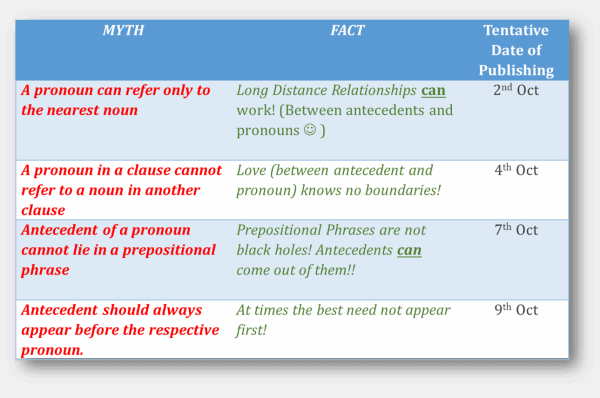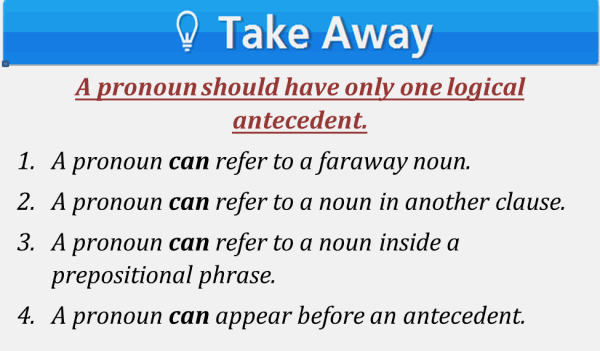Events & Promotions
|
|

GMAT Club Daily Prep
Thank you for using the timer - this advanced tool can estimate your performance and suggest more practice questions. We have subscribed you to Daily Prep Questions via email.
Customized
for You
Track
Your Progress
Practice
Pays
Not interested in getting valuable practice questions and articles delivered to your email? No problem, unsubscribe here.
- Nov 19
12:30 PM EST
-01:30 PM EST
Learn how Keshav, a Chartered Accountant, scored an impressive 705 on GMAT in just 30 days with GMATWhiz's expert guidance. In this video, he shares preparation tips and strategies that worked for him, including the mock, time management, and more - Nov 20
07:30 AM PST
-08:30 AM PST
Learn what truly sets the UC Riverside MBA apart and how it helps in your professional growth - Nov 20
01:30 PM EST
-02:30 PM IST
Learn how Kamakshi achieved a GMAT 675 with an impressive 96th %ile in Data Insights. Discover the unique methods and exam strategies that helped her excel in DI along with other sections for a balanced and high score. - Nov 22
11:00 AM IST
-01:00 PM IST
Do RC/MSR passages scare you? e-GMAT is conducting a masterclass to help you learn – Learn effective reading strategies Tackle difficult RC & MSR with confidence Excel in timed test environment - Nov 23
11:00 AM IST
-01:00 PM IST
Attend this free GMAT Algebra Webinar and learn how to master the most challenging Inequalities and Absolute Value problems with ease. - Nov 24
07:00 PM PST
-08:00 PM PST
Full-length FE mock with insightful analytics, weakness diagnosis, and video explanations! - Nov 25
10:00 AM EST
-11:00 AM EST
Prefer video-based learning? The Target Test Prep OnDemand course is a one-of-a-kind video masterclass featuring 400 hours of lecture-style teaching by Scott Woodbury-Stewart, founder of Target Test Prep and one of the most accomplished GMAT instructors.
Combined all the articles in this series and added a single pdf! Check it at the end of this post 

PRONOUN USAGE – MYTHS & FACTS
Before delving into the article, let us look at some sentences and test our knowledge of pronoun usage.
a. The UV radiation emitted by the Sun is carcinogenic and hazardous in ozone-free areas.
b. The UV radiation emitted by the Sun is highly dangerous because it has a very low wavelength.
c. A solar flare emitted by the Sun can destroy a communication satellite because scientists estimated that its temperature is high enough to accelerate further damage.
In terms of pronoun usage, which of the above sentence(s) do you think is/are incorrect?
Read on for the answers.
COMMON CONFUSION
Students usually falter with the usage of pronouns because of some existing myths regarding pronouns. Through the next four articles in this series, we will present four such myths and break them down once and for all. After reading these articles, you’ll have a much better understanding of correct pronoun usage and be able to identify pronoun errors.
THE UNDERLYING PRINCIPLE
Before we go on to talk about myths, let me reinforce the underlying principle behind pronoun usage.
This is the only principle behind pronoun usage. For instance, there can be multiple nouns in a sentence. But if the pronoun in the sentence logically refers to only one noun, that is, if only one noun makes sense when the pronoun is replaced by it, in that case we have only one logical antecedent for the pronoun. Such a sentence remains logically sound because despite the presence of multiple nouns, the logical meaning is conveyed by replacing the pronoun with only one particular noun. If in a sentence that has multiple nouns a pronoun can be replaced by more than one noun and the sentence gives logical meaning by all such replacements, then we certainly have pronoun ambiguity. In such a case the pronoun seems to have more than one logical antecedent.
PROBLEM SOLVING
With this point in mind, let us now revisit the sentences in the above exercise.
a. The UV radiation emitted by the Sun is carcinogenic and hazardous in ozone-free areas.
There isn’t any pronoun used in this sentence and the sentence is correct.
b. The UV radiation emitted by the Sun is highly dangerous because it has a very low wavelength.
There are three nouns in this sentence. “UV radiation”, “Sun” and “wavelength”.
Now keeping our above mentioned principle in mind, let us see which one among these three can be a logical antecedent.
i. Is “UV radiation” a logical antecedent of the pronoun “it” in this sentence?
In other words, does the statement “UV radiation has a very low wavelength” make sense in this context?
Yes. It does. It is perfectly logical to talk about the wavelength of radiation. The sentence “UV radiation has a very low wavelength and so the UV emitted by the Sun is highly dangerous” makes sense in this context. So “UV radiation” is a logical antecedent of the pronoun “it”.
ii. Is “Sun” a logical antecedent of the pronoun “it” in this sentence?
Again, ask yourself the following.
Does the statement “Sun has a very low wavelength” make sense in this context?
No. The statement isn’t logical. The sentence “Sun has a very low wavelength” doesn’t make sense at all. So “Sun” isn’t a logical antecedent of the pronoun “it”.
iii. Is “wavelength” a logical antecedent of the pronoun “it” in this sentence? To answer this question, ask yourself the following.
Does the statement “wavelength has a very low wavelength” make sense in this context?
No. It doesn’t. It isn’t logical at all. So “wavelength” isn’t a logical antecedent of the pronoun “it”.

So we have only one logical antecedent of the pronoun “it” in this sentence. So this sentence is correct.
c. A solar flare emitted by the Sun can destroy a communication satellite because scientists estimated that its temperature is high enough to accelerate further damage.
There are four possible antecedents in this sentence. They are “solar flare”, “Sun”, “communication satellite” and “temperature”.
Now following a similar approach as in the previous example
i. Does the statement “Solar flare’s temperature is high enough to accelerate further damage to a communication satellite” make sense in this context?
Yes. It is perfectly logical. So “Solar flare” is a logical antecedent of the pronoun “it”.
ii. Does the statement “Sun’s temperature is high enough to accelerate further damage to a communication satellite” make sense in this context?
Yes! Therefore “Sun” is a logical antecedent of the pronoun “it”.
iii. Does the statement “Communication Satellite’s temperature is high enough to accelerate further damage to a communication satellite” make sense in this context?
Yes. A satellite might have high temperature. It does make sense. So “Communication satellite” is a logical antecedent of the pronoun “it”.
iv. Does the statement “Temperature’s temperature is high enough to accelerate further damage to a communication satellite” make sense in this context?
NO! It is not at all logical to say so. Therefore “temperature” is not a logical antecedent of the pronoun “it”.

The pronoun “it” in this sentence has more than one logical antecedent. So there is pronoun ambiguity in this sentence.
In the above examples, wherever a pronoun is used, we replaced the pronoun with the possible antecedents and checked if the sentences made sense.
If no antecedents make sense, we say there is no logical antecedent to the pronoun.
If more than one antecedent makes sense, we say that there is pronoun ambiguity in the sentence.
IN THE CONTEXT OF GMAT
Pronoun errors are quite often tested on GMAT and GMAT continues to confuse students with these errors. Furthermore pronoun errors are not as deterministic as SV errors or Modifier errors are. Therefore, pronoun error should be used as a last reason to reject an option choice, only after all other deterministic errors have been used in the process of elimination. Such scenarios arise in quite a few difficult questions on the GMAT.
DEBUNKING MYTHS ABOUT PRONOUNS
So now we will look at some of the myths students have regarding the usage of pronouns and will debunk them. Given below in the table are some of the most common myths surrounding pronoun usage and the actual facts associated with them.
Keep an eye on this thread to read in detail about these myths and the facts associated with them.
Thanks.
Krishna
Attachments
![]() Collection of all the 5 Articles.pdf [2.38 MiB]
Collection of all the 5 Articles.pdf [2.38 MiB]
Downloaded 4610 times
![]() Pronouns - Debunking Popular Myths - Intro.pdf [1.85 MiB]
Pronouns - Debunking Popular Myths - Intro.pdf [1.85 MiB]
Downloaded 2884 times
Hi Folks,
Thank you for all the appreciation for the first article in this pronoun series.
Without wasting any more time let us get started with the popular myths around pronouns and debunk them once and for all.


SOURCE OF THIS MYTH
This myth usually arises when a student somehow confuses pronoun usage with modifier usage. Modifiers usually tend to modify the nearest entity. Remember?
Placement of a modifier is pretty important because a misplaced modifier can end up modifying an entity it is not supposed to modify. Hence generally modifiers are placed closer to the entity they are meant to modify. Somehow test takers extend this rule to pronoun usage also, giving way to this myth that pronoun can refer only to the nearest noun.
LET’S DEBUNK THIS MYTH
There is no such thing that a pronoun has to refer to the closest noun. Let us debunk this myth with the help of a few simple examples and then we will substantiate this point with Official examples.
Simple Example 1: Although the discovery of America was not intentional and Columbus actually believed that he discovered India, it is widely acclaimed as one of the major turning points in Modern History.
The pronoun “he” unambiguously refers to the noun “Columbus”. So the usage of “he” is correct.
What about the pronoun “it”? Is it used correctly or is there any error in its usage.
In the sentence, what are the possible antecedents for the singular pronoun “it”?
“Discovery, America, India, Modern History”.
Now let us look at the following sentences and see which one of them makes sense.
a. The discovery (of America) is widely acclaimed as one of the major turning points in Modern History.
b. America is widely acclaimed as one of the major turning points in Modern History.
c. India is widely acclaimed as one of the major turning points in Modern History.
d. Modern History is widely acclaimed as one of the major turning points in Modern History.
Does the first sentence make sense in this context?
Yes. It absolutely does.
The discovery (of America) is widely acclaimed as one of the major turning points in Modern History, even though it (the discovery) was unintentional.
This makes perfect sense. Therefore “discovery” is a logical antecedent of the pronoun “it” even though the antecedent is far away from the pronoun.
What about the second sentence? Does it make sense in this context?
First of all the sentence “America is widely acclaimed as one of the major turning points in Modern History” itself doesn’t make sense! (How can a country be a turning point in History? Events, Actions etc. can be turning points in History, not Countries or other places.)
So it isn’t even logical to say “America is widely acclaimed as one of the major turning points in Modern History even though the discovery of America was unintentional”!
Therefore “America” is not a logical antecedent of the pronoun “it” in this sentence.
We can reject “India” too on similar reasoning. (Even though “India” is the nearest noun.)
Now what about the fourth sentence?
The sentence itself isn’t logical. First of all History as a whole cannot be a turning point. The major events in a history are considered as its turning points. Moreover the sentence is same as saying “A monkey is one of the most commonly found animal among monkeys”.
Therefore, “Modern History” is not a logical antecedent of the pronoun “it” in this sentence.
Therefore the pronoun “it” has only one logical antecedent (discovery) and the sentence is correct.

This sentence reiterates the fact that the distance between a pronoun and its antecedent doesn’t matter as long as there is only one antecedent which is logical”.
Please note that this doesn’t mean that pronoun cannot refer to a nearer noun. Consider the following example.
Simple Example 2: Even though there was a chance of attack for the lion, it walked away without harming the deer.
Here in this sentence, as you can see, the pronoun “it” can logically refer only to the noun “lion”. Look at the following two sentences and see which one of them makes sense in this context.
a. The lion walked away without harming the deer, even though there was a chance of attack for the lion. (Perfect!!)
b. The deer walked away without harming the deer, even though there was a chance of attack for the lion. (Is this even logical?)
The first sentence makes perfect sense and therefore we can definitely say that “lion” is a logical antecedent of the pronoun “it”.
On the other hand, the second sentence isn’t even logical. So [color=#ff0000]“deer” is not the logical antecedent of the pronoun “it”.[/color]
Therefore, the pronoun “it” in this sentence has only one logical antecedent (lion) and it so happens in this case that the pronoun is referring to the nearest noun.

Note that this need not always be the case as we have already seen in Example 1.
Now let us look at a couple of official sentences.
Official Sentence 1: Although Napoleon's army entered Russia with far more supplies than for any previous campaign, it had provisions for only twenty-four days.
Here, even though the noun “Napoleon’s army” is very far from the pronoun “it”, there is no error in the usage. The pronoun “it” can logically refer only to the noun “Napoleon’s army” and not “Russia” or “campaign”.
It is not logical to say that “Although Napoleon’s army entered Russia with more supplies, Russia had provisions for only twenty four days”.
How do the supplies with Napoleon’s army matter to Russia?
The amount of provisions with Russia are independent of what Napoleon’s army has.
Similarly, it is not logical to say that “Although Napoleon’s army entered Russia with more supplies, campaign had provisions for only twenty-four days.” (A campaign cannot have provisions.
Note that in the context of this sentence, a campaign is a military mission and provisions are supplies for survival.)
However, it is logical to say that “…Napoleon’s army had provisions for only twenty-four days.”
Therefore there is only one logical antecedent of the pronoun “it” in this sentence and the sentence is correct (even though the antecedent is far away from the pronoun).

Official Sentence 2: Because an oversupply of computer chips has sent prices plunging, the manufacturer has announced that it will cut production by closing its factories for two days a month.
Here both the pronouns “it” and “its” can refer only to the noun “manufacturer”, even though the noun “production” is nearer to the pronouns.

(Observe that except for “manufacturer”, no other noun makes sense to be referred to by “it” or “its” in the context of the sentence.)
SUMMARY
To summarize, wherever a pronoun is used, we replace the pronoun with the possible antecedents and check if the sentences made sense.
If no antecedents make sense, we say there is no logical antecedent to the pronoun.
If more than one antecedent makes sense, we say that there is a pronoun ambiguity in the sentence.
TAKEAWAY

We have now successfully debunked a myth.


EXERCISE QUESTION
Try this exercise question to see how well you understand pronoun usage.
Identify the possible antecedents for the pronoun and check if the pronoun usage is correct or not.
We will provide the OA as soon as we get some responses.
Banana corp., which is aware of the fact that it has a high likelihood of producing faults, continues to use the new Flexi Mixie Screen.
Cheers,
Krishna
Attachments
![]() The PDF for the article.pdf [1.09 MiB]
The PDF for the article.pdf [1.09 MiB]
Downloaded 956 times
Hi folks!
Let us now blow away another myth related to pronoun usage.

SOURCE OF THIS MYTH
This myth arises when a pronoun logically referring to a noun antecedent lies in a different Independent Clause (IC). Test takers usually tend to think that a pronoun in one IC cannot refer to a noun in another IC, as a single IC denotes a complete idea by itself.
LET’S DEBUNK THIS MYTH
We need to keep in mind that an IC + IC construction is considered as one big IC. (Similarly an IC + DC construction is also a big IC). Therefore a pronoun can refer to a noun in another clause if the two clauses are connected properly.
Simple example 1: The King of Atlantis is fond of his white tiger, but the citizens are afraid of it.
Look at the sentence structure below.
• The King of Atlantis is fond of his white tiger,
• but the citizens are afraid of it.
Observe that this sentence is an IC+IC construction joined by a “Comma + But”.
Here, the pronoun “it” in the second IC unambiguously refers to “white tiger” even though the antecedent is in another clause.
“The citizens are afraid of the white tiger” makes perfect sense in this context and so “white tiger” is the logical antecedent of the pronoun “it” even though both of them are in different clauses.

Note that this doesn’t mean that a pronoun always refers to a noun in a different clause.
Observe that the pronoun “his” refers to “King of Atlantis” and both of them are in the same clause.
Consider the following example.
Simple example 2: The King of Atlantis takes care of his citizens; no wonder he is loved by them.
The structure of this sentence is as follows:
• The King of Atlantis takes care of his citizens;
• no wonder he is loved by them.
Observe that here we have two ICs joined by a semicolon.
Here in this sentence the pronouns “his” and “he” can refer only to “King of Atlantis”.
Similarly the pronoun “them” can refer only to “citizens”.
There are no other possible antecedents for these pronouns.
Moreover the pronoun usage makes perfect sense in this sentence.
Therefore there is no error in the pronoun usage.

The thing to be noted here in this sentence is that the pronoun “them” and its antecedent “citizens “are in different clauses. Similarly the pronoun “he” and its antecedent “King of Atlantis” are in different clauses.
However, the pronoun “his” and its antecedent “King of Atlantis” are in the same clause.
So this example should serve as proof to the fact that the pronoun and its antecedent can be in same or different clauses. The position of the antecedent doesn’t matter as long as it is logical.
Now let us look at a couple of official sentences.
Official Sentence 1: The budget for education reflects the administration's demand that the money be controlled by local school districts, but it allows them to spend the money only on teachers, not on books, computers, or other materials or activities.
The structure of the sentence is as follows:
- The budget for education reflects the administration's demand
- that the money be controlled by local school districts,
Observe that the first clause is an IC and the second clause is a DC as it starts with the dependent marker “that”. Together this IC+DC = IC.
Now the third clause is an IC joined to the previous IC with “Comma + But”.
This is an officially correct sentence. (GMAT PREP)
There is only one logical antecedent (local school districts) of the pronoun “them”.
However there are four possible antecedents (budget, education, demand and money) for the pronoun “it”. Now consider the following sentences.
a. Budget allows school districts to spend money only on teachers.
b. Education allows school districts to spend money only on teachers.
c. Demand allows school districts to spend money only on teachers.
d. Money allows school districts to spend money only on teachers.
As you can see, only sentence (a) makes sense in this context.
Hence there is only one logical antecedent (budget) for the pronoun “it” and the sentence is correct.

Observe that both the pronouns have their antecedents in another clause.
Let us look at another official sentence.
Official Sentence 2: The peaks of a mountain range, acting like rocks in a streambed, produce ripples in the air flowing over them; the resulting flow pattern, with crests and troughs that remain stationary although the air that forms them is moving rapidly, is known as "standing waves."
This is an officially correct sentence. (OG12 #95) The structure of the sentence is as follows.
- • The peaks of a mountain range, acting like rocks in a streambed, produce ripples in the air flowing over them;
• the resulting flow pattern, with crests and troughs
- o that remain stationary
o although the air
- that forms them
The pronoun “them” is referring to “crests and troughs” which is in a different clause altogether. (Note that the other possible nouns do not make logical sense as antecedents).

Therefore we can again say that the positions of the antecedent and pronoun do not matter as long as the reference is unique and logical.
Summary
To summarize, wherever a pronoun is used, we replace the pronoun with the possible antecedents and check if the sentence makes sense.
If no antecedents make sense, we say that there is no logical antecedent to the pronoun.
If more than one antecedent makes sense, we say that there is pronoun ambiguity in the sentence.
TAKEAWAY



EXERCISE QUESTION
Try this exercise question to see how well you understand pronoun usage.
Identify the possible antecedents for the pronoun and check if the pronoun usage is correct or not.
We will provide the OA after we get some responses.
• Every student must put more effort while studying it because if a student doesn’t have a good grasp on the concept of fractions, they will face difficulty in understanding Algebra.
Cheers!!
Krishna
Attachments
![]() Myth 2.pdf [1.01 MiB]
Myth 2.pdf [1.01 MiB]
Downloaded 612 times
































